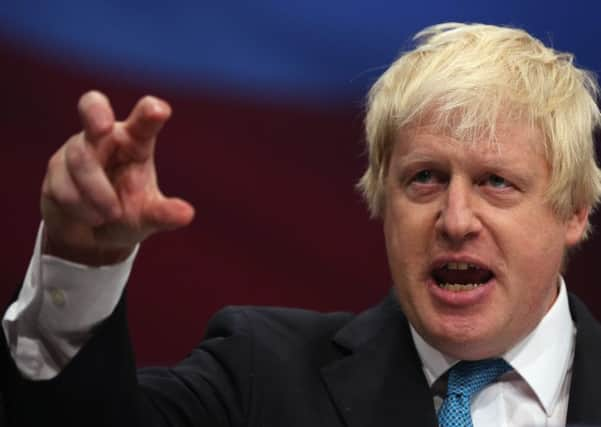Andrew Tickell: Universities need object lesson in democracy


On stage, four figures, four candidates to be lord rector. The first was instantly recognisable, his bobbing blonde head an angora rabbit lightly soused in ball lightning. His suit was blockish, looking expensive but unstylish, like a school blazer you are meant to grow into, and he wore it like a sack of potatoes. It could only be Boris. Frenetic performances on Have I Got News For You had catapulted the future Tory Mayor of London into the public consciousness and, hugger-mugger in the stirring crowd of students, his partisans couldn’t believe their luck. The Conservatives might struggle to get an MP elected in Scotland – but by gum, if guile, celebrity and the cult of personality couldn’t snare the chair of Edinburgh’s university court for this candidate, nothing could.
Boris was joined by Magnus Linklater, formerly of this parish, whose lightly diffident, patrician manner couldn’t have contrasted more sharply with the audience, who were eagerly anticipating blood and thunder. Much of this was provided by the legendary left-wing activist and SWP agitator, Mick Napier. In the best traditions of international, campaigning choices for rector, the journalist John Pilger had been nominated, and the roustabout, thundering Napier would be his voice. He raged against the Iraq War and he raged against privilege, and privileged elements of the audience raged back.
Advertisement
Hide AdAdvertisement
Hide AdBut last of all – a much more modest looking fellow clung to the edge of the stage. With a speck of a face, spectacles set beneath a gleaming bald pate, Scottish Green Party MSP Mark Ballard risked being eclipsed by his competitors. And to some extent he was. A man of fiery conviction but demure exterior, Ballard took Boris – then shadow education spokesman – to task for his defence of tuition fees. While Napier re-litigated the rights and wrongs of Britain’s military adventures abroad, Linklater daintily tracked a middle way between socialist environmentalism, on one hand, and Boris’s rapacious, on-message Toryism on the other.
The audience capered and clapped and hooted and scorned. And all four candidates emerged, a bit ruffled perhaps, but more or less unscathed.
And ultimately? The quiet man won. Dynamited by his aggressive promotion of tuition fees south of the Border, Boris’s campaign sputtered and died, relegating him to a sorry third place in the rectorial run off. For all of the froth and the scorn and the silliness of that night in the Union, the issues won the day. A patrician clown seasoned with a spice of wit is still a clown.
I was reminded of this memorably crabbit undergraduate occasion this week, when I read the extraordinary letter promulgated to the media by a score of serving, unelected heads of university courts, protesting that elections represent a blow against equality. They report that none of them would contemplate submitting themselves to a democratic process.
In reply, I say only this. The mere fact of the election itself was a splendid thing. Yes, turnout was less than universal. But these shared democratic occasions create not only transparency, and accountability – they are civic. Arguments don’t just dismantle institutions – they build them. Universities, ancient and modern, are more than clusters of over-lit lecture halls and under-heated seminar rooms. They are more, far more, than a payroll of lecturers and a matriculation list of students, temporarily boxed together for the purposes of transmitting knowledge from skull A to skulls B, C and D.
They are communities. They are not managerial units. They are not mere bureaucratic instruments of government education policy. They strive and fail. They question and think. They are messy, imperfect, and in that sense, perfectly human.
The Scottish Government’s Universities Bill defines academic freedom as the freedom, within the law, to “hold and express opinions”, to “question and test established ideas or received wisdom”, to develop and advance new ideas” and “present controversial or unpopular points of view.” That crabbit, sometimes uncomfortable night in the sweltering Teviot hall seems to me a perfect expression of these principles. By contrast, the objections of the unelected chairs this week seemed small, jealous of their privileges, even feart. The bill has been scorched in the media. The rhetoric, superheated. The hysterical mode of Scottish politics, which characterises this as “academic vandalism”, or even more ludicrously, as pursuing “SNP political control of universities”. For some, the new scrutiny will be uncomfortable. Very well, it is uncomfortable.
But far from the SNP playing fast and loose with the democratic traditions of Scotland”, this Bill is in the best of those traditions. Rectors are an expression of the democratic intellect, nourished in our ancient universities, and now, finally, being extended across the country, to our newer institutions. The Scottish Government would do well to take a lesson in argument from Teviot’s debating hall, and shout its democratic message a little louder. «